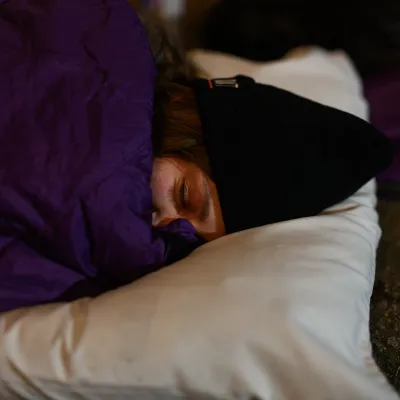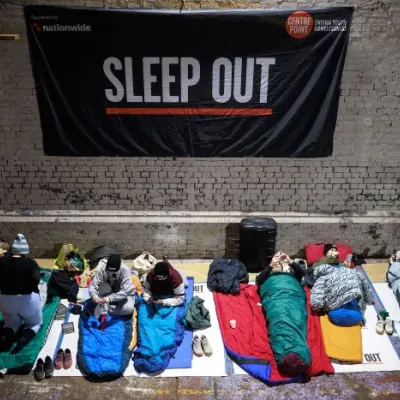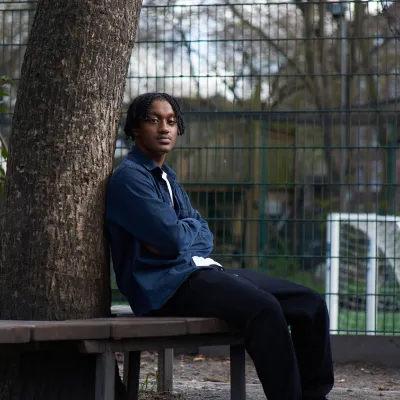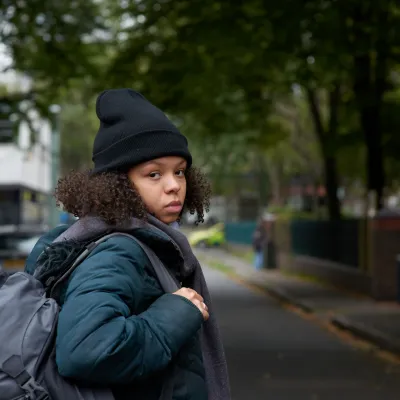According to official legislation, The Vagrancy Act is summarised as “An Act for the Punishment of idle and disorderly Persons, and Rogues and Vagabonds, in England.”
If you think the language sounds kind of archaic, you’d be right: created in the early 19th century, the law means, in today’s terms, that it is an offence in England and Wales to beg or sleep rough.
Where does it come from?
The origins of The Vagrancy Act finds roots in the end of the Napoleonic Wars, brought to life to make it easier for police to clear the streets of destitute soldiers who were returning home from battle, homeless and penniless. It meant thousands of men who had served their country - many of whom were injured in the fray and left changed, both mentally and physically - were now considered “rogues” and “vagabonds” and charged with an attempt to “obtain or gather alms” through the “exposure of wounds or deformities”. In other words, the government felt that it should be illegal for those soldiers left without homes to use their injuries to ask for food or money.
It was also used as a way to punish outsiders - transient people from Scotland or Ireland who stopped in England weren’t wanted, and strangers sleeping rough in certain areas were all targeted under the new law.
Why is it so bad?
The Vagrancy Act was passed in the summer of 1824, which means it is now just shy of its 200th birthday. And if it held any relevance then, it certainly doesn’t now.
At its core, The Vagrancy Act is a way to punish people “in any deserted or unoccupied building, or in the open air, or under a tent, or in any cart or waggon, not having any visible means of subsistence”. Essentially, it criminalises homelessness. For homeless people, both begging and rough sleeping are things out of their control, and the Act does little to get to the root of why people are homeless in the first place.
Plus, those who utilise the Act have been shown to make no efforts to help people move on positively: a 2017 study by Crisis shows that those invoking the Act regularly moved rough sleepers on and banned them from certain locations, all under the threat of arrest - but for the majority of cases, no kind of support was never offered.
This pushes rough sleepers away from help and makes poverty a crime. If charged, it can carry up to a £1000 fine, which makes the chance at escaping homelessness almost impossible.
Homelessness is a hugely critical issue in this moment, particularly with Covid-19 causing a rise in rough sleepers. But even before Coronavirus, numbers were on the rise. In the past five years, homelessness camps have trebled, and councils often have a heavy-handed approach to de-escalating them - which include invoking The Vagrancy Act. Some councils also seize rough sleepers’ property and charge a fine to get it back; Brighton council, for example, charge £25. As we speak, Dorset councillors are attempting to push through proposals that would see homeless people fined for sleeping in doorways.
This means moving rough sleepers on - but to where? It’s a vicious cycle. In all the chaos of criminalising homelessness, no effort is made to ensure rough sleepers have the support they need to really move on - from sleeping on the streets.
The Vagrancy Act pushes rough sleepers even further away from a better life, not just taking away what small amount of security and finances they may have, but also making vulnerable people distrusting of authorities.
What needs to be done?
The Vagrancy Act was brought into the spotlight in 2018 after Windsor’s council leader demanded police use their legal powers move on the borough’s homeless people in time for the royal wedding. Since then, there have been strong calls for the government to scrap the antiquated law - which would be great, but until that point there has to be at least a readjustment of attitudes towards homelessness.
There are actual solutions that we can use to reduce homelessness that don’t include punishment or penalisation. Instead, there should be a more comprehensive approach to the UK’s outreach - it should be one that includes support for the issues that many rough sleepers face, such as addiction and mental and physical ill health. At its core, this requires an adjustment of mindsets; until people stop seeing homelessness as an inconvenience - and homeless people as the makers of their misery - we cannot begin to solve this issue. Being homeless isn't a crime, and we shouldn't treat it as such.
To read more about our stance on The Vagrancy Act, please read our briefing on the subject from 2019.






